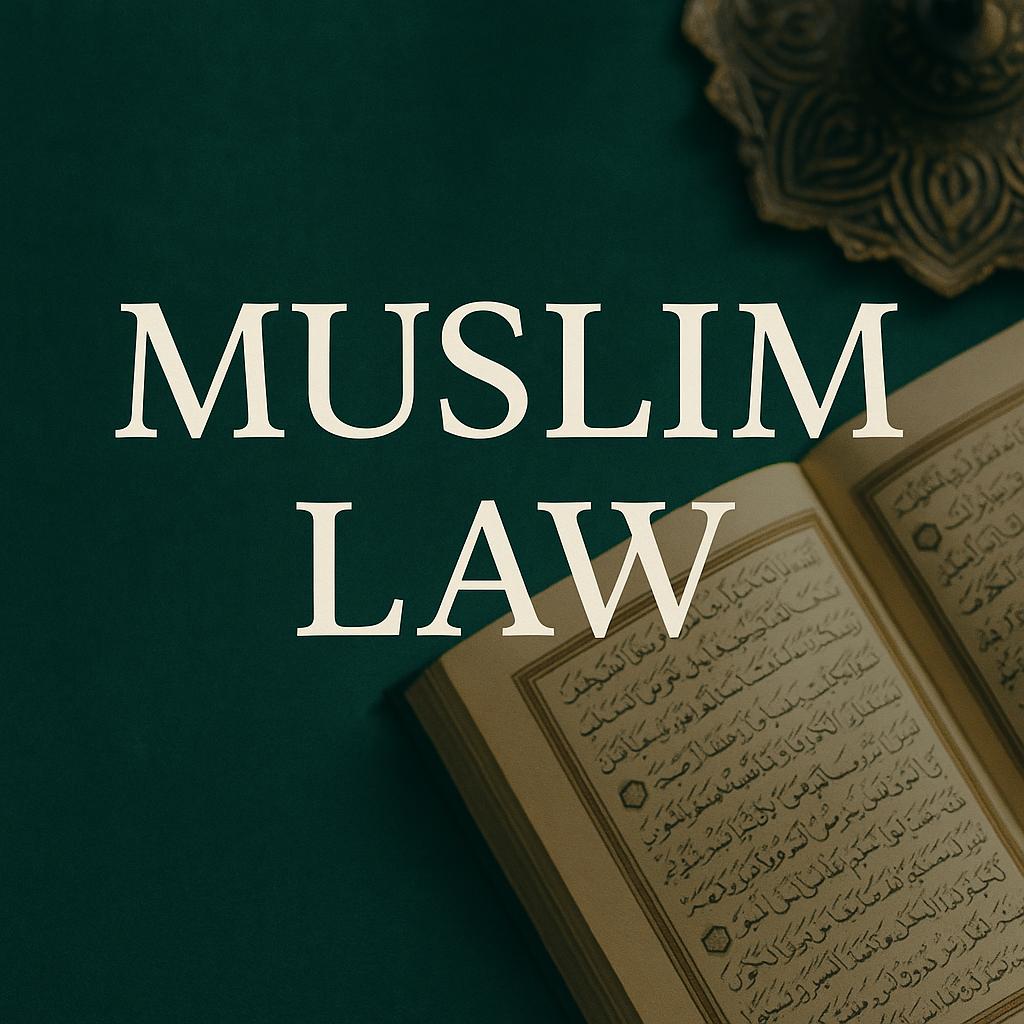Who is a Muslim under Muslim Law?
Islam, which literally means submission to the will of Allah, is a monotheistic religion based on the Holy Qur’an and the teachings of the Prophet Muhammad (peace be upon him).
In a secular sense, the Prophet is seen as the founder of Islam, but under Islamic belief, he is regarded as the last and final Messenger of Allah.
Those who follow Islam are called Muslims. With over 1.9 billion followers globally, Islam is the second-largest religion after Christianity.
• Definition of a Muslim (Legal and Theological View)
A Muslim is a person who:
• Believes in the Oneness of Allah (Tawheed)
• Accepts Prophet Muhammad (PBUH) as the final messenger of God
✓ Scholarly and Judicial Views
Aghnides’ View:
A Muslim is one who:
(i) Believes in the mission of Prophet Muhammad
(ii) Declares that there is no god but Allah and Muhammad is His Prophet
(iii) Believes in the essential principles of Islam
Justice Amir Ali:
“Any person who professes the religion of Islam, i.e., accepts the unity of God and the Prophethood of Muhammad (PBUH), is a Muslim.”
√ Judicial Recognition:
This view was affirmed in Narantakath v. Prakkal (1992) 45 Mad 986, where the Madras High Court held that:
The only essential doctrines required to be a Muslim are:
• (a) Belief in one God, and
• (b) Belief in Prophet Muhammad (PBUH)
Any belief beyond this is not relevant for a court of law.
∆ By Birth or Conversion
• A person born to Muslim parents is presumed Muslim.
• A person can also embrace Islam by sincere conversion, through declaration of Shahada.
• Key Case Laws on Conversion:
° Skinner v. Orde (1871) 14 MIA 309
The Privy Council held that conversion must be genuine, not to circumvent personal law. Mere ceremony without sincere belief is invalid.
° Bhaiya Sher Bahadur v. Bhaiya Ganga Baksh Singh (1914) 41 IA 1
An illegitimate son born to a Muslim woman and a Hindu man, raised as a Hindu, was held to be Hindu, not Muslim.
• Apostasy and Continuity of Faith
A person remains Muslim by birth unless they renounce Islam after attaining majority.
Courts do not interfere in doctrinal variations as long as the basic beliefs are satisfied.
• Application of Muslim Law in India
Muslim Law does not apply universally to all aspects of a Muslim’s life.
Indian courts apply only personal laws relating to family and inheritance based on:
°Muslim Personal Law (Shariat) Application Act, 1937
Section 2: Muslim Personal Law applies to Muslims in matters of:
• Intestate succession
• Special property of females
• Marriage and its dissolution
• Maintenance, Dower (Mehr)
• Guardianship, Gift, Trust, Waqf
✓Land and agricultural disputes are excluded.
Section 3 – Voluntary Application
Any person who:
• (a) Is a Muslim
• (b) Is competent to contract
• (c) Is a resident of the territory
Can declare before the prescribed authority that they wish to be governed by Muslim Personal Law.
Upon declaration, adoptions, wills, and legacies will also be governed by Muslim Law for the declarant and descendants.
• Muslim Law & Justice, Equity, and Good Conscience
In absence of statutory provisions, Muslim personal law is applied on the basis of:
Justice, Equity, and Good Conscience
Example: The law of pre-emption is applied in many states (except Tamil Nadu) on this principle.
• Conclusion (Summary)
A Muslim, under law, is a person who believes in the oneness of Allah and the Prophethood of Muhammad (PBUH)—either by birth or genuine conversion.
In India, Muslim Personal Law applies primarily to family matters through the Shariat Act, 1937, while other applications may arise through justice, equity, and good conscience.
✓ Start Your Preparation with TOA
At Theory of Abrogation, we equip you with everything you need:
•Subject-wise expert classes
•Mock test series
•Legal current affairs
•Personalized mentorship for interview preparation
“Your law degree is your foundation, but your preparation is what will build your success”
✓ Click here to watch the TOA Playlist on Muslim law:-https://youtube.com/playlist?list=PLqZx–XvsMkU95SYUQhEUtv5UWhkVsDq9&si=IZpEbkH66CjPx4hx
Join Our New Batch Now!
Prepare smart. Prepare with Theory of Abrogation.
Contact Us:
📍 B-109, Commercial
Complex Dr. Mukherjee
Nagar, Delhi-09
📞 +91 9971399324 | +91 8840961324
📧[email protected]

